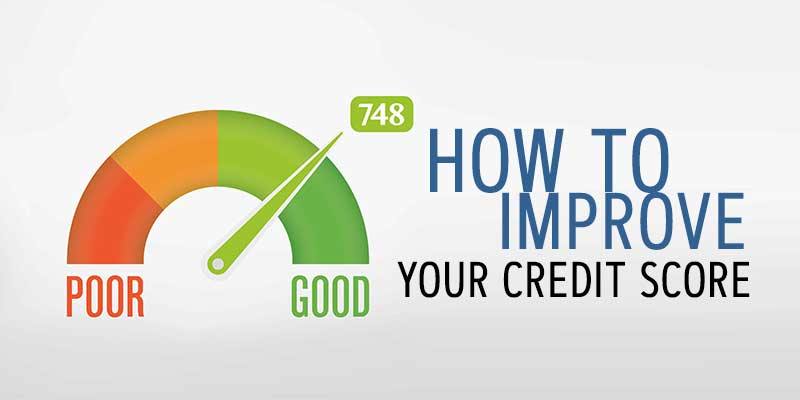Money Management

3 Simple Hacks to Improve Your Credit Score
Are you struggling with credit and unsure how to improve your credit score? You’re not alone. The truth is that many Canadians aren’t sure how credit works and how agencies calculate your creditworthiness.
This article will show you three simple hacks to improve your credit score. You can read a deep dive into this topic with my recent article on personal finance tips to improve your credit score.
Why is it Important to Increase Your Credit Score?
Think of your credit score as how banks and loan companies judge risk. The higher your score, the lower the risk you aren’t able to repay the money you borrow. It’s important to increase your credit score to access more lending opportunities at lower interest rates for car loans, mortgages etc…
How is Your Credit Score Calculated

Banks and other financial institutions report your repayment history monthly to agencies such as Equifax and TransUnion. Each of these agencies gathers all of these reports and information provided to calculate a score of your creditworthiness. You can find your report using apps such as CreditKarma and Borrowell.
Five main factors determine your credit rating.
Do you make your payments on time?
Paying your bills on time makes up 35% of your creditworthiness. If you miss a single payment, your rating will drop a lot. Ensure you always make at least the minimum payment on all obligations each month.
How much of your credit do you use?
Known as “utilization”, 30% of your creditworthiness is determined by how much of your limits you use. You can hurt your score if you max out revolving accounts like credit cards. If you keep your balances below 30% of your total limits you will improve your credit rating.
How long have you had credit?
The age of your open accounts has a minor impact on your overall score. Making up about 15% of your rating, you can hurt your credit rating by closing old accounts. Therefore, keep old accounts open, even if you do not use them.
What type of credit do you have?
Where you apply for credit and the mix of products you have has a 15% impact on your creditworthiness rating. Agencies like TransUnion and Equifax prefer banks like TD Canada Trust and Scotiabank over secondary and tertiary institutions like Easy Financial and Fairstone. Higher quality = higher rating.
It’s not only where you have your accounts, but what type of accounts that matter. A diversified mix of credit cards, mortgages and car loans reflects better than just a handful of high-interest accounts such as various credit cards and other high-interest loans.
How often do you apply for new credit?
Making up the final 10% of your rating is how often companies check your report to open new accounts. If you constantly look for new credit accounts, agencies rate you as a higher risk. Therefore only apply for loans when you need them. This habit will reduce the impact of checks on your score.
Check Your Credit Report for Inaccuracies
Did you know that over 50% of Canadians have incorrect information on their credit report? My first credit hack is to remove inaccurate information from your report.
Checking your report for inaccuracies can substantially improve your creditworthiness by removing negative information. You can order your report for free directly from Equifax and TransUnion.
Once you carefully review your report, dispute any inaccuracies with the agency. Both Equifax and TransUnion have simple ways to access dispute resolution via their websites:
Pay Down Balances on High-Interest Accounts

The second hack I have for you is to pay down the balances on your high-interest accounts. These include credit cards, payday loans and lines of credit.
Utilization makes up 30% of your rating, therefore hugely impacts creditworthiness. Improve your credit score by reducing balances on these accounts to less than 30% of your total limits. (ie. If your limit on your RBC Infinite Avion is $5,000, keep your balance below $1,500 at all times – ideally $0 so you don’t pay interest).
Increase Your Limits to Improve Your Credit Score
The last personal finance tip to improve your credit rating is to increase the limits on your revolving accounts. Before you do this, ensure that you are living within your means. If you consistently rely on debt to pay your bills and don’t save money, skip this tip and read this article.
If you already manage your finances well, rarely rely on debt and maintain a high savings rate increase the limits on your revolving accounts. Higher limits on credit cards and lines of credit limit decrease your utilization.
For example:
- Current limit of $5,000 & balance of $1,000 = 20% Utilization
- Increasing your limit to $10,000 while maintaining a $1,000 balance = 10% Utilization
This personal finance tip can result in an immediate improvement of your credit rating.
Review
To sum up this article, there are three simple tricks you can use to increase your credit rating:
- Check your report for any inaccuracies like accounts that aren’t yours or are marked inaccurately as delinquent
- Pay down the balances of all high-interest accounts, especially revolving accounts such as credit cards. Keep your balances under 30% of your total limits
- Increase the limits on revolving accounts such as credit cards. Increasing your limits decreases your utilization and helps improve your creditworthiness
About the Author
The column's goal is to level up your financial knowledge and help you avoid common pitfalls and mistakes along the way. Although money management sometimes seems like an intricate task, it doesn't have to be. The advice here is common sense and simple to follow. The first step to a better financial future starts here, and it's never too late to begin. Adam Stapley is a Mortgage Broker with Pineapple Financial and author of the personal finance Newsfeed CanadianFinanceGuide.ca. He is intensely passionate about helping Canadians build wealth through the power of real estate. Many of the articles in this column come from Adam's experience assisting Canadians to understand and shape their personal finances. Pineapple Financial Lic #12830 CanadianFinanceGuide.ca adam@canadianfinanceguide.ca




